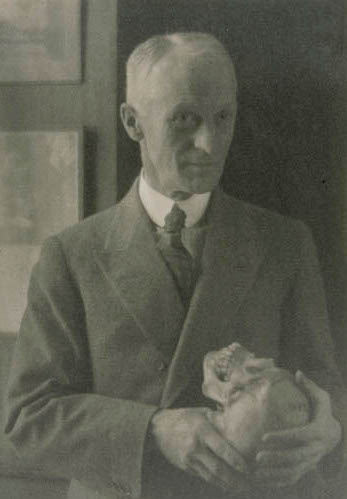And so, the day of my
pituitary surgery dawned!
Or rather, it didn't. It was still dark when I got up that morning; I had to report to the hospital at 7am and I needed to get up early enough to allow time for paranoid checking and re-checking of my bag. Thank god for the internet - I packed in a rush the night before, but all I had to do was Google "what to pack for hospital" and I was supplied with numerous checklists that helped ensure I did not forget my toothbrush.
I reported in, accompanied by my mum and dad, and was duly supplied with my attractive compression stockings and various leaflets. I was assigned a waiting bed in the neuro day ward, and another lady who was having the same surgery was there as well. One of the nurses ran through the pre-operative assessment form again and I was swabbed for
MRSA - apparently if you come up positive they don't cancel your operation but you do get moved to the end of the queue for that day, in case you end up contaminating the patients after you.
It was at this point that I started meeting anaesthetists. A woman walked into the room and introduced herself as my anaesthetist, asked me some questions, and let me ask her any questions I had. Shortly after she left, a man walked into the room, introduced himself as my anaesthetist, seemed surprised when I said I had already met someone claiming to be my anaesthetist, asked if I had any questions, and then left. These two certainly looked and dressed like anaesthetists, but I have to say that the third man to introduce himself as my anaesthetist was the most convincing, as he was sticking a needle into my arm at the time.
There was a lot of sitting around informing people that I wasn't pregnant that morning, plus the signing of various consent forms allowing them to keep slices of tumour for research purposes and promising them not to haunt them if I died. As hospitals are really an
ideal setting for poltergeist activity, I for one felt this was pretty harsh.
At some point a nurse asked me to get changed into one of their haute couture hospital gowns, so I did. The lady in the next bed was wheeled off to her surgery. Somewhat later, two young men arrived and announced they had come to take me for a
CT scan of my pituitary.* No-one had told me that I was going to have a scan, so this was something of a surprise.
The porters went out to confer with the nurses. There was a considerable amount of to-ing and fro-ing, mind-changing, phonecalls and confusion, but eventually it was decided that yes, I was indeed due to have a CT scan before the surgery. I was told it could take up to an hour, so I cheerily waved my parents goodbye and was wheeled away in my bed by the porters, whose social lives I learned quite a lot about on the way to the distant CT scanner.
I was taken into the scanning waiting room, in the bowels of the hospital, and my bed was parked up. It was not a cheery place; everyone else in there was really not well. I felt strangely fraudulent, sitting up in my wheely bed like a perfectly healthy person, waiting.
And waiting.
There was a bit of a backlog at the scanner, as per usual. I have no idea how long I had been waiting, when all of a sudden, Mr Pout (one of my surgeons - I
wrote about him in this post) appeared by the side of my bed, all scrubbed up and out of breath.
"Miss Grey, we've been looking for you!" he cried, in what I felt was an unreasonably reproachful manner given that I had quite clearly not wheeled myself down there. "Everyone's waiting for you in theatre right now!"
Of all the WTF moments that the hospital has given me in our association, that was certainly the strangest to date. Mr Pout grabbed the bed and attempted to wheel me to the operating theatre; not an easy task, plus it was quite a long way away. Hospital beds are like larger, more dangerous supermarket trolleys and require two people for optimum maneouverability. Fortunately we (quite literally) bumped into one of Mr Pout's colleagues along the way, and she lent a hand wheeling me into a lift.
Along the way, Mr Pout breathlessly explained that they had originally been intending to do my pituitary surgery with teeny instruments and the aid of an
ENT team (Ear, Norse & Throat;
Treebeard doesn't do transsphenoidal surgery), due to my "narrow nasal passages".** In order for this to happen, the ENT people neeed a CT scan. However, when my surgery had been cancelled, they had cancelled the ENT team and had been unable to un-cancel them; consequently they would be doing the surgery the normal way, assuming the instruments would fit up my nose. There was a slight risk, Mr Pout informed me, that they would not.
At this point, Mr Hamstercheeks, the head surgeon appeared. I had never met him before. "
I was just explaining that the surgery might not be able to go ahead if her nose is too small," said Mr Pout.
Mr Hamstercheeks looked at my nose. "No, it'll be fine," he said.
HARSH.
"Can someone please make sure that my parents know I've gone into surgery?" I asked. A nurse asked for their details, picked a phone off the wall and dialled the ward where I had been to request that my parents were told. As I found out later however, somehow the receptionist on the ward managed to get epically confused and my parents were never told, despite asking where I was. They weren't bothered though, they went into town for lunch.
At this point I was still wearing my glasses, hairband, and slippers, which I had to take off; I was super nervous, but in a way the complete muddle over my surgery was kind of good - because it meant I was laughing as they wheeled me into the prep room. I met the third anaesthetist and various people starting sticking needles in my arms. It turns out the third anaesthetist used to live in the same road as me, so we got chatting about the local takeaways. At one point I thought I should just lie back and relax, let the various medical professionals do their thing - but then I suddenly became deeply paranoid that they'd think I was asleep when I wasn't (stupid I know) so I decided to keep talking as long as I was awake.
As this is what I usually do anyway, it was not a problem.
_______________________
*Possibly I should note that they were hospital porters, not kidnappers.
**If you haven't worked it out, transsphenoidal pituitary surgery involves sticking surgical instruments up your nose and drilling through the back of it to gain access to the inside of your skull.




